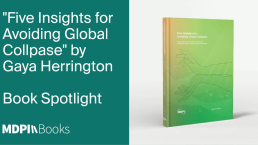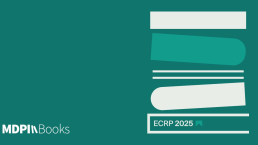
The Challenges Facing Early-Career Researchers in Academic Book Publishing
Early-career researchers face many challenges when entering academic book publishing, and not just because of their lack of experience. While that is an issue, the landscape of academic book publishing is not always accommodating to early-career researchers. Knowing how to navigate this difficult environment is key.
From funding restrictions at the institutional level to a lack of formal training, early-career researchers are often let down by systemic biases or oversights. However, there are still opportunities for early-career researchers to take advantage of within academic book publishing too.
Here, we’ll cover the challenges early-career researchers face while highlighting what there is to remain positive about.
Who are early-career researchers?
Early-career researchers (ECRs) are typically defined as those who have recently completed their PhD or been awarded their first academic appointment. ECRs are usually within transitionary periods, learning how to go from supervised to independent research while navigating career developments.
This transitionary aspect of early-career researchers often means that they face unique challenges when trying to establish themselves. But what are they?
Challenges for early-career researchers in academic book publishing
Early-career researchers tend to juggle a lot of different responsibilities. Usually, they are writing and researching, carrying out various administrative tasks, and submitting to and partaking in academic conferences. On top of that, they are also trying to make a name for themselves within an environment that is generally not too welcoming to those without experience.
To get an idea of this environment, let’s take a look at some of the specific challenges early-career researchers face.
Low academic profile
Perhaps one of the biggest challenges an early-career researcher faces is having a low academic profile. But what does this mean?
Well, an author’s academic profile is based on their productivity and citation impact. These can be measured by determining an author’s h-index. An author’s h-index is a metric that is calculated, “h” being the number of papers that have received at least “h” citations. For example, a researcher with an h-index of 7 has 7 papers cited 7 or more times. The h-index was originally designed for scientific papers, not books. However, it can be adapted by calculating the number of books published and their citations.
Still, this does not address the more fundamental issue—that ECRs simply won’t have as many publications to their name as other, more experienced researchers. This means that they are more likely to be overlooked by book publishers if they lack a defined track record.
ECRs can build their academic profile by actively sharing their research online and at conferences, connecting and collaborating with like-minded researchers, and regularly seeking constructive feedback from peers and mentors.
Funding limitations
Another big obstacle for early-career researchers to overcome is a lack of available funding.
There are a few reasons why funding does not come easy to ECRs. Here are some of the main reasons:
- Failure to meet typical eligibility criteria for funding grants
- Budget limitations at the institutional or university level
- Disciplinary or geographic constraints
These obstacles for ECRs range from often-arbitrary (even if necessary) assessments of suitability to sector-wide or subject-specific limitations when it comes to funding resources.
As you can see, the question of achieving funding at a particular moment in time is often out of the ECR’s hands. ECRs can be short-changed by failing to meet only one requirement, for example, needing at least 2 years of experience post PhD completion. While these measures are a better way of ensuring applications from more suitable candidates, the criteria don’t necessarily reflect an author’s research abilities or writing skills.
Lack of formal training in peer review
Peer review is an essential part of academic publishing. Research has to be judged to be credible and high quality. Therefore, it must typically undergo several rounds of assessment to be deemed suitable for publication. This process is usually carried out by external reviewers.
Reviewing academic papers isn’t a requirement for researchers, but it can be a highly beneficial process to engage in, for personal career prospects and the academic community at large.
However, most early-career researchers do not receive formal training in peer review. Instead, they become familiar with the peer review process by receiving reviews of their own research. This may lead to misunderstandings in what is expected of a peer reviewer when it comes to critically and fairly assessing another’s research.
Job security
Despite studying a lot and having numerous responsibilities after qualification, many early-career researchers find themselves with precarious tenures or job contracts. When funding cuts come knocking at the doors of universities, ECRs can be seen as more expendable than other staff.
This level of uncertainty surrounding job security has a huge impact on the wellbeing and productivity of ECRs. By not having job security, other opportunities in terms of funding and collaborative relationships may become more difficult to seek or maintain.
MDPI Books Early-Career Researcher Prize
As these issues demonstrate, it’s hard for early-career researchers to establish themselves within academic publishing. That’s why MDPI Books wants to help.
We’re delighted to announce the Early Career Researcher Prize. This is a new publishing opportunity for our early-career researchers. The prize is made possible through the sponsorships of four of our journals: Humanities, Philosophies, Publications and Social Sciences. One proposal per journal will be selected and receive full editorial support and a complete waiver of Book Processing Charges (BPCs), enabling open access publication at no cost to the author(s).`
For more information on the competition and how to enter, see our announcement post










